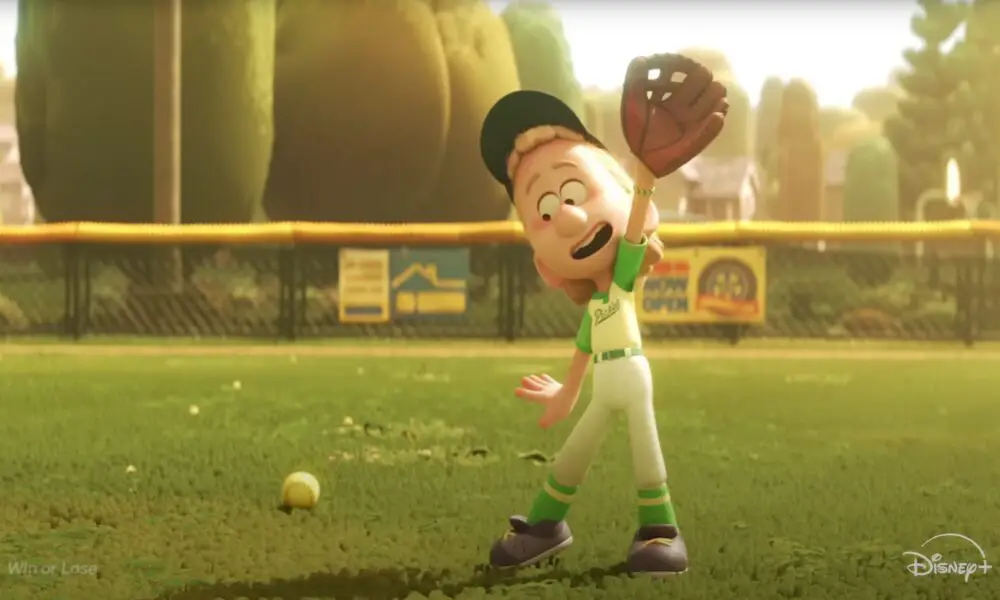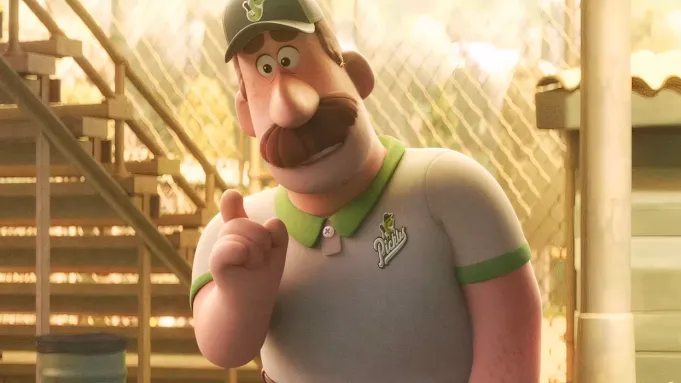Disney has sparked controversy by removing a transgender storyline from its new animated series Win or Lose ahead of its release.
The series, produced by Disney-owned Pixar, centers on the Pickles, a co-ed middle school softball team preparing for their championship game. Each of the eight episodes, set to debut on Disney+ on February 19, focuses on a different team member.
While the character involved in the transgender storyline will remain part of the show, the plot addressing their gender identity has been removed, according to a source close to the production. This decision was reportedly made months ago, despite the dialogue for the storyline already being recorded.

Disney’s Statement and Public Reaction
In response to the decision, Disney released a statement via CNN, saying, “When it comes to animated content for a younger audience, we recognize that many parents would prefer to discuss certain subjects with their children on their own terms and timeline.”
The move has ignited debates about the motivations behind the change, with some speculating it reflects a broader shift in corporate strategies amid heightened political scrutiny.
The timing has coincided with the reelection of former President Donald Trump, who has been outspoken against diversity, equity, and inclusion (DEI) initiatives. However, Disney declined to comment when asked whether the removal signaled a step back from its commitment to diversity, according to The Hollywood Reporter.

CEO Bob Iger’s Perspective
Disney CEO Bob Iger has previously emphasized that the company’s primary mission is to entertain rather than to prioritize social messaging.
“The term ‘woke’ is thrown around rather liberally,” Iger told CNBC earlier this year. “Infusing messaging as a sort of number one priority in our films and TV shows is not what we’re up to. They need to be entertaining.”
Mixed Reactions From the Public
The decision to remove the storyline has divided public opinion.
Supporters of the move argue that sensitive topics like gender identity are best addressed by parents.
“As a parent, I appreciate Disney respecting our role in guiding these conversations,” one social media user shared.

Others, however, view the decision as a capitulation to political pressures, criticizing Disney for what they see as a lack of commitment to inclusivity.
“Disney is bowing to a loud minority and turning its back on representation,” one critic commented.
Fans also expressed disappointment over what they perceive as a missed opportunity for nuanced storytelling.
“This sends a message that trans stories aren’t worth telling, even when handled thoughtfully,” wrote another.
Others highlighted the potential impact on the creative team.
“Imagine being an artist or writer who poured your heart into that storyline, only to see it erased,” lamented a Pixar fan.
Disney’s History With LGBTQ Representation
This isn’t the first time Disney has faced scrutiny over LGBTQ representation. The 2022 Toy Story prequel Lightyear included a same-sex kiss but initially faced pushback internally before the scene was reinstated. The film later faced bans in multiple countries and criticism from conservative groups.
Disney has also showcased LGBTQ representation in other projects, such as FX’s Pose and Marvel’s Agatha: Coven of Chaos. However, its response to Florida’s 2022 “Don’t Say Gay” legislation drew backlash from both sides of the political spectrum, further complicating its position on these issues.

The Debate Over Entertainment and Inclusivity
As Disney continues to navigate the tension between storytelling and representation, its leadership reiterates the importance of entertainment as the company’s core mission.
“When I came back, what I’ve really tried to do is return to our roots — which is, remember, we have to entertain first: it’s not about messages,” Iger said at the DealBook Summit last year.
Despite this focus, the decision to remove the transgender storyline has reignited discussions about how major media companies balance inclusivity with broader audience expectations. The controversy leaves many questioning the future of representation in mainstream entertainment.
